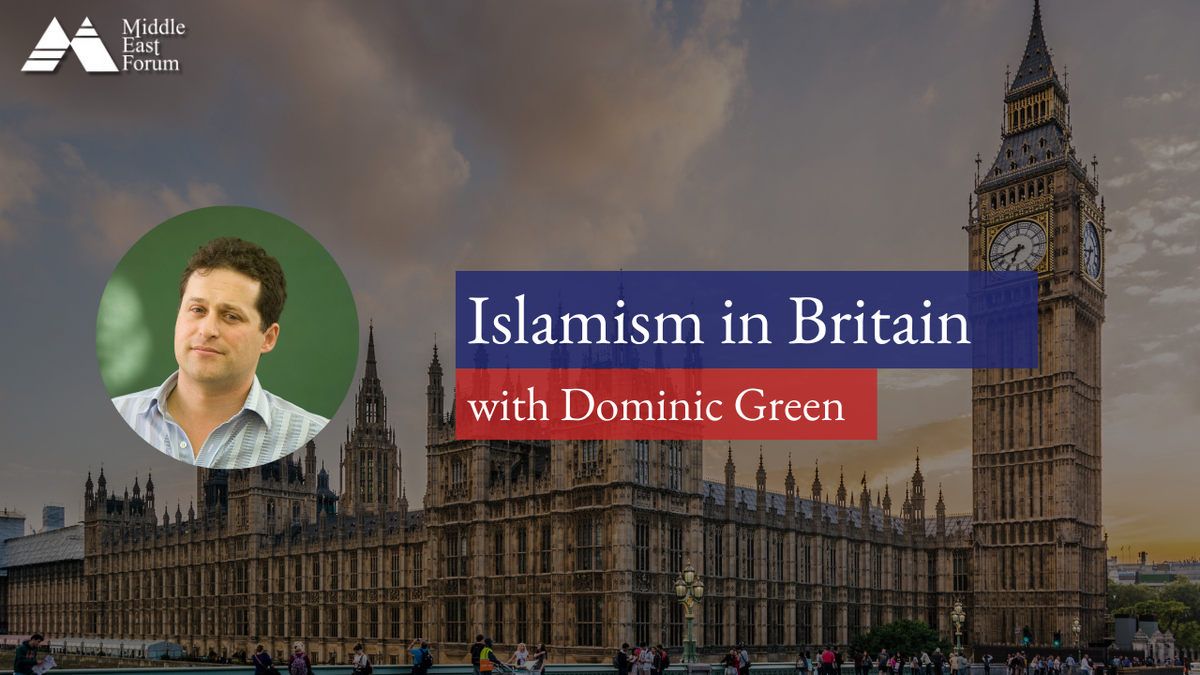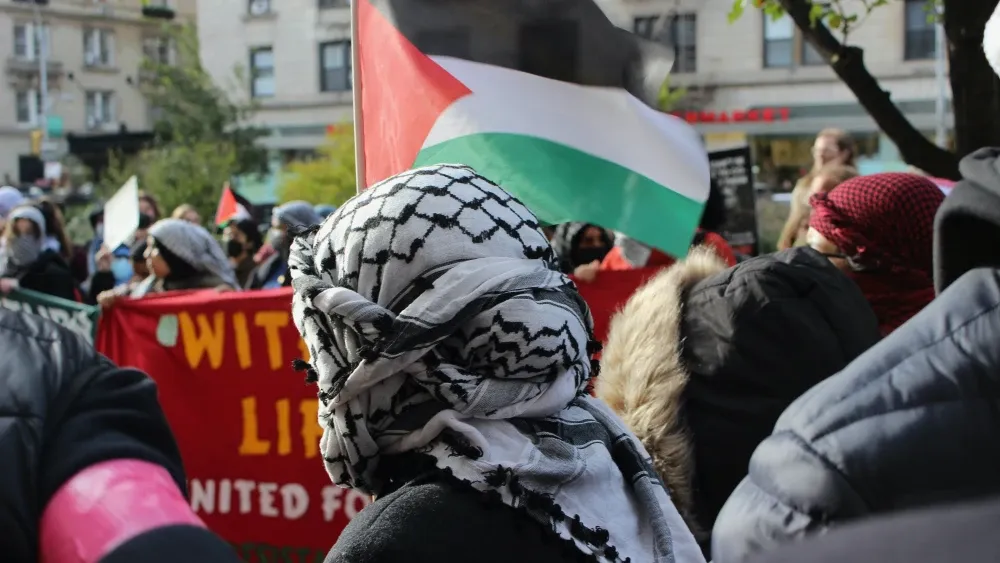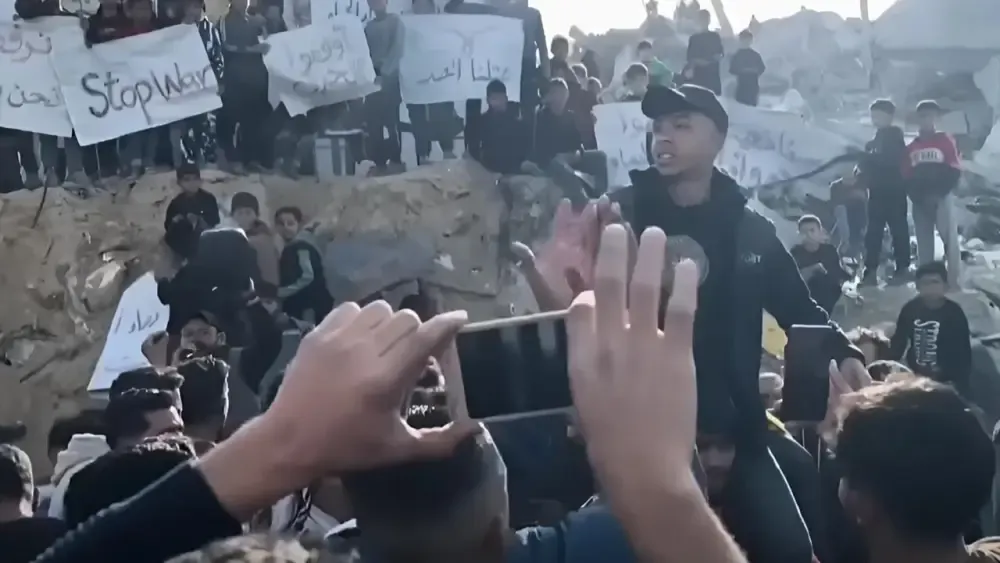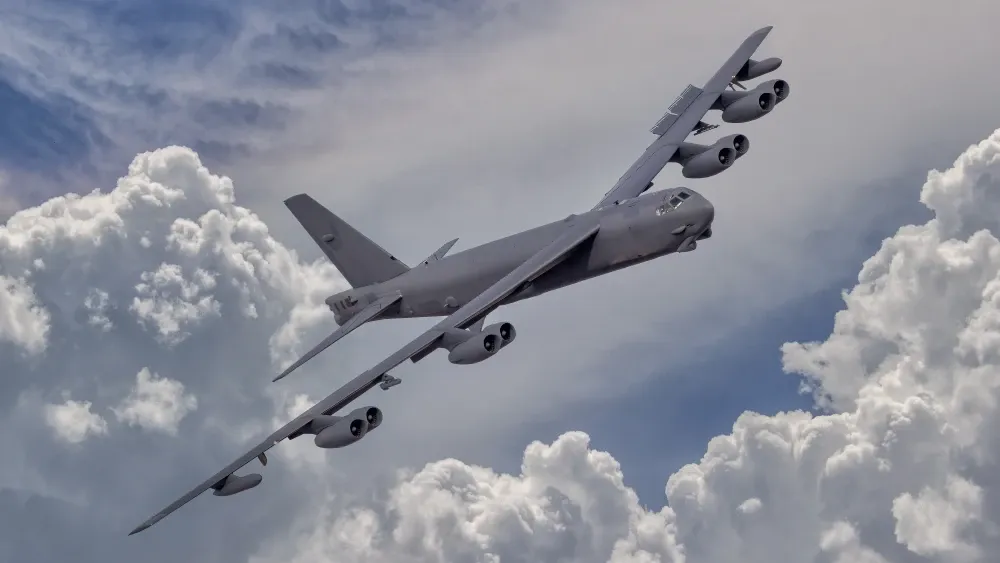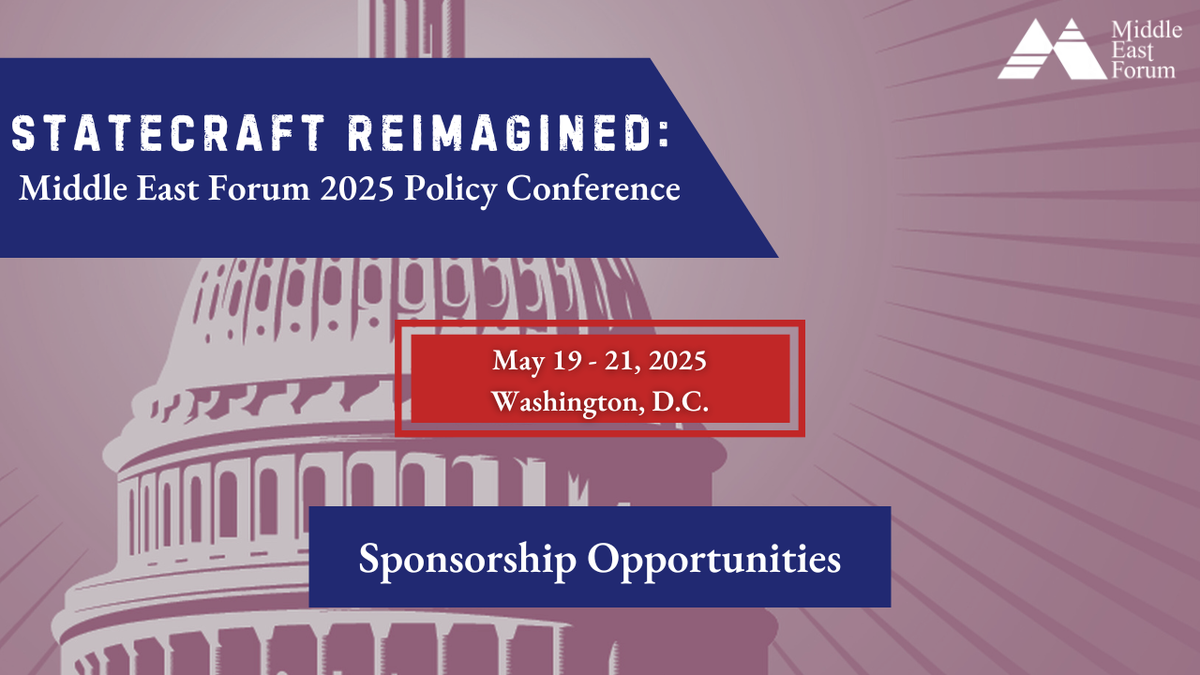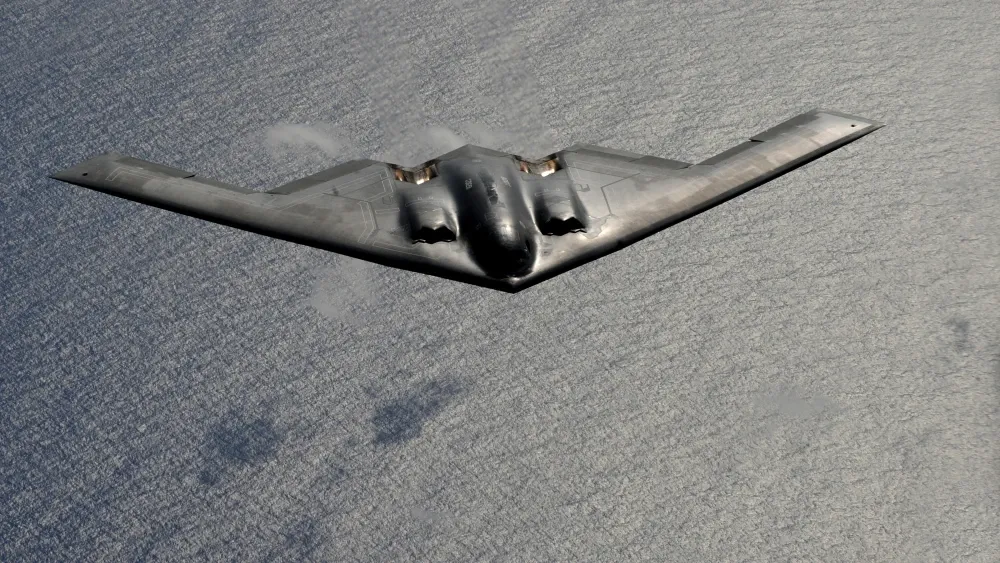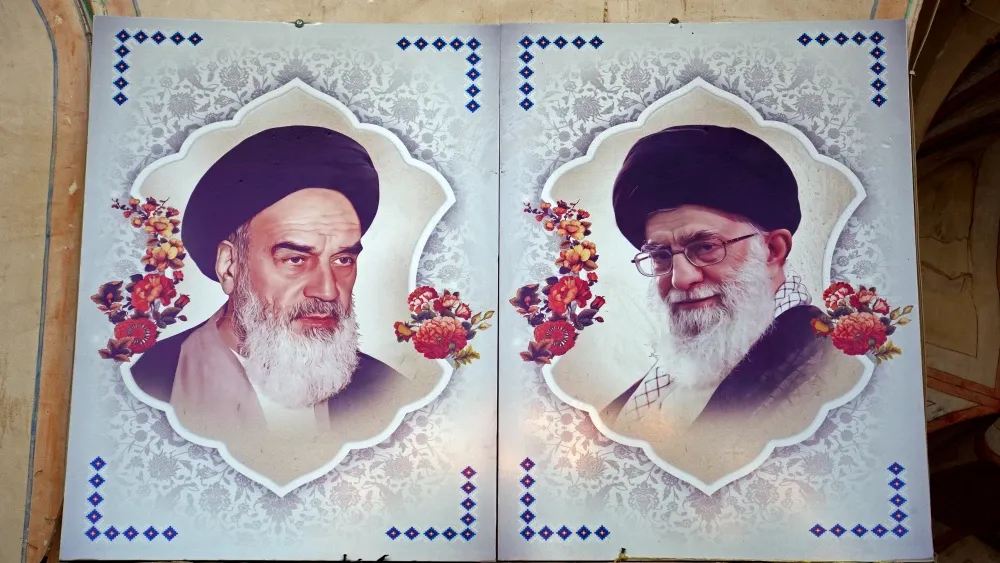| ||
 | ||
| Recovering Damages from Post-Oct. 7 Riots; Brave Gazans Confront Hamas; Will There Be War with Iran? By Winfield Myers ● Apr 07, 2025 Smart Brevity® count: 7 mins...1877 words Gregg Roman describes how Jewish organizations and businesses may use civil applications of the Racketeer Influenced and Corrupt Organizations Act (RICO) to recover $1.5 billion in economic damages resulting from the post-Oct. 7 riots. Daniel Pipes calls our attention to those a former Hamas political prisoner calls “the bravest people on earth”: Gazans taking to the streets to condemn Hamas and protest its rule. We then offer four articles analyzing Iran, beginning with two by Michael Rubin on the possibility of a U.S.-Iranian conflict. Supreme Leader Khamenei may believe his people will rally around him if American bombs fall, but that may be his final error. What happens if Iran attacks the U.S. base at Diego Garcia? Two vulnerable Iranian ports may provide the answer. War with the U.S. isn’t the only threat facing Tehran. Even its last core supporters—the “hard base”—is turning against the system in a development that could send Iran’s regime the way of Syria’s. Finally, in an ill-advised move, the U.S. House of Representatives passed a resolution supporting the widely-despised organization MEK, which young Iranian women reject as a relic of hijab-pushing religious conservatism. | ||
ICYMI: “Islamism in Britain” with Dominic GreenIslamism casts a growing shadow over the U.K. Both foreign and homegrown Islamist currents are fueling tension and challenging national stability. Islamist ideologies have taken deep root, disrupting communities and igniting fierce political debate. Their political influence and impact are advancing at every level of society. Bold action is urgently needed and drastic steps must be taken if disaster is to be avoided and this threat turned back. How has Islamism reshaped British society? Can its spread be halted? What must be done to restore unity, security, and social cohesion? To watch the full podcast episode, click here. | ||
After October 7 Riots: Recovering $1.5 Billion in Economic DamagesIn the wake of the October 7 attacks and ensuing protests, many Jewish organizations faced huge losses. A forthcoming MEF economic analysis suggests these damages may exceed $1.5 billion nationwide, including property damage, business disruption, security costs, and lost revenue. Why it matters: Civil RICO offers a promising legal remedy for affected organizations, allowing them to seek compensation for economic damages due to coordinated activities.
The big picture: Many smaller businesses lack the resources for federal litigation, but a claims assignment strategy can help.
What's next: Businesses should document damages, consider claim assignments, and consult specialized counsel for RICO litigation.
Closing thoughts: Courts have reinforced the validity of RICO claims and their assignability, offering affected entities a viable path to redress without the full burden of litigation. To read the full article, click here. | ||
Gazans, ‘The Bravest People on Earth,’ Confront HamasIn a rare and daring move, thousands of young Gazans have taken to the streets, openly defying their Hamas terrorist rulers with chants of "Hamas is terrorism," “Hamas rule has destroyed us,” and "We want peace!" Why it matters: These protests expose the deep-rooted anger and frustration among Gazans, challenging the oppressive grip of Hamas and signaling a potential shift in the Palestinian-Israeli conflict.
The big picture: The movement ignited spontaneously from a funeral in the Beit Lahiya district and rapidly gained momentum, despite Hamas's brutal attempts to silence dissent.
Reactions: International observers, including former political prisoner Moumen al-Natour, hail the bravery of these protestors, while Hamas's violent backlash draws global condemnation.
Implications: While the protests may not topple Hamas, they lay bare the existence of Gazans who reject Hamas’s rule, potentially paving the way for new governance backed by Israel.
To read the full article, click here. | ||
Does Iran Want a War with America?As Iran faces a persistent legitimacy crisis, Supreme Leader Khamenei is provoking military action, daring the U.S. to respond, despite the risks. Why it matters: This strategy is a gamble for Khamenei, who hopes to rally national support while facing internal dissent. The stakes are high, as his actions could backfire dramatically.
The big picture: Traditionally, the U.S. has avoided direct strikes on Iran, fearing regional retaliation, a nationalist reaction in support of the regime, and a slippery slope to war.
What’s next: As Khamenei's isolation grows, the U.S. has the precision capability to strike with minimal casualties, potentially altering the Iranian power landscape.
Closing thoughts: The U.S. must act with nuance, considering historical grievances while minimizing harm to ordinary Iranians. Khamenei's provocation could be his final miscalculation. To read the full article, click here. | ||
Become an MEF Policy Conference 2025: Statecraft Reimagined SponsorJoin as a sponsor at the upcoming Policy Conference in D.C. May 19-21, a key event that brings together thought leaders, policymakers, and elected officials. By supporting MEF, you will have a unique opportunity to showcase your commitment to shaping the future of U.S. foreign policy while gaining valuable exposure to a highly engaged audience and decision-makers. Your support will help make this event a success, providing a platform for meaningful conversations and collaborations that drive change. To learn more about becoming a sponsor, click here. | ||
B-2 Bombers Are in Diego Garcia; What Happens if Iran Attacks?The Iranian regime threatens to retaliate against U.S. bases, including Diego Garcia, if Trump orders a strike, but Tehran's threats are largely bluster given the Diego Garcia's distance beyond their missile range. Why it matters: Neither Iran's aggressive statements nor the deployment of B-2 bombers suggest imminent war. The U.S. moves are deterrents, not preludes to conflict.
What’s next: The U.S. must articulate the consequences of any Iranian attack on American assets to deter aggression.
The big picture: Destroying these ports would not only degrade Iran's military capabilities but also weaken its alliance with China, offering a strategic advantage to the U.S.
To read the full article, click here. | ||
Is Iran’s Regime About to Go the Way of Syria’s?As the Islamic Republic of Iran turns 46, even its staunchest supporters—the hard-line base—are questioning their loyalty, threatening the regime's stability. Why it matters: The erosion of support from the hard base, crucial for suppressing dissent, poses an existential threat to the regime. Khamenei faces a dilemma: intensify ideological policies and risk mass protests or ease them and lose the support of his foot soldiers.
The big picture: Over four decades, Iran's ruling clerics have lost broad support, relying now on a narrow, ideological base. Recent perceived betrayals and ineffective policies have alienated even this core group.
What’s next: Khamenei's attempts to regain support include reinforcing ideological policies and avoiding negotiations with the U.S. However, these moves may incite further unrest.
To read the full article, click here. | ||
Iranian Youth Reject Maryam Rajavi’s and the Mujahedin-e Khalq’s Embrace of Mandatory HijabThe U.S. House's resolution backing the Mujahedin-e Khalq (MKO/MEK) is a tone-deaf move that alienates Iran's youth, who see the group as a symbol of outdated oppression. Why it matters: While young Iranians are burning hijabs and advocating for modernity, the MEK's leader, Maryam Rajavi, stands as a relic of religious conservatism—completely out of touch with the new generation's fight for freedom.
The big picture: The MEK's facade of feminism fails to resonate with a generation favoring secular icons like Masih Alinejad, who truly represent their aspirations for a progressive Iran.
What’s next: For genuine influence, the U.S. should pivot its support to leaders who embody the future Iranian youth envision—a sharp break from religious tyranny and towards modern, secular governance.
To read the full article, click here. | ||
| As the situation in Gaza develops and Iran threatens the region, we pledge to produce a steady stream incisive analyses. As always, we invite you to forward this issue to a friend and to use the comments feature to let us know your thoughts on the Dispatch and the issues we cover. Sincerely, Winfield Myers | ||
| Was this edition useful? Your email will be recorded and shared with the sender | ||
| Powered by | ||
| ||

